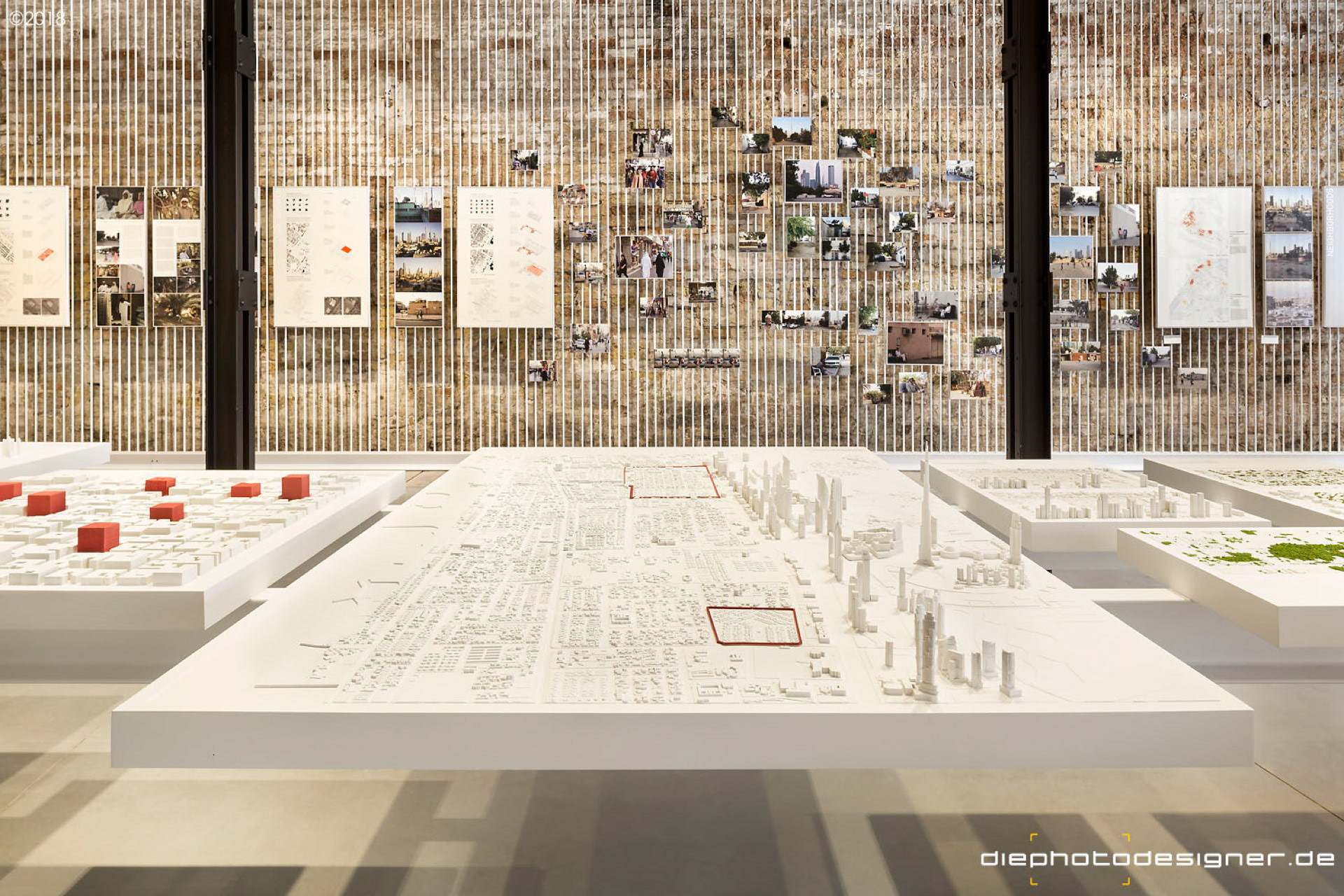An ethnographic study of side-alleys; a reclaimed Islamic urban typology of public life, where pedestrians challenge the starchitecture of Abu Dhabi, United Arab Emirates.
April 2017 New York University Abu Dhabi, Bachelor Thesis
Location Al Danah, Abu Dhabi, United Arab Emirates
Academic Mentors Dr. Rana Tomaira, Dr. Eric Hamilton
External Mentors Dr. Yasser Elsheshtawy, Dr. Khalid Alawadi
Location Al Danah, Abu Dhabi, United Arab Emirates
Academic Mentors Dr. Rana Tomaira, Dr. Eric Hamilton
External Mentors Dr. Yasser Elsheshtawy, Dr. Khalid Alawadi
“Reclaiming The In-Between: Everyday Spatial Practices in Abu Dhabi’s Modern Sikkak”
Abstract (Writing Sample)
Seeking to discover the hidden side of Abu Dhabi, this project investigates this Gulf city’s ‘forgotten’ urban spaces; in between the super-block urban fabric lie neglected side-alleys and modern sikkak. I use a theoretical framework that responds to a shift in urban research, emphasizing the everyday as well as transnational connections in which the local and the global are closely intertwined. I position the popular urban interstice in the context of Islamic urban tradition as I argue for the conceptualisation of side-alleys as modern sikkak and propose valuing their historic and sustainable qualities. Using a mixed methodology that combines both GIS based mapping and video recording, the side-alleys of Abu Dhabi were observed and analysed to show the resilience of city dwellers in circumventing official space narratives and how pedestrians lay claim to the city. Through the site-specific analysis of user’s behaviour, their activities as well as the architectural morphology of these spaces, I situate them within the overall development of Abu Dhabi’s past, present and future.
Seeking to discover the hidden side of Abu Dhabi, this project investigates this Gulf city’s ‘forgotten’ urban spaces; in between the super-block urban fabric lie neglected side-alleys and modern sikkak. I use a theoretical framework that responds to a shift in urban research, emphasizing the everyday as well as transnational connections in which the local and the global are closely intertwined. I position the popular urban interstice in the context of Islamic urban tradition as I argue for the conceptualisation of side-alleys as modern sikkak and propose valuing their historic and sustainable qualities. Using a mixed methodology that combines both GIS based mapping and video recording, the side-alleys of Abu Dhabi were observed and analysed to show the resilience of city dwellers in circumventing official space narratives and how pedestrians lay claim to the city. Through the site-specific analysis of user’s behaviour, their activities as well as the architectural morphology of these spaces, I situate them within the overall development of Abu Dhabi’s past, present and future.
Keywords: Gulf urbanism, public space, side-alley, sikkak, the everyday, terrain vague, informality, transnational architectures
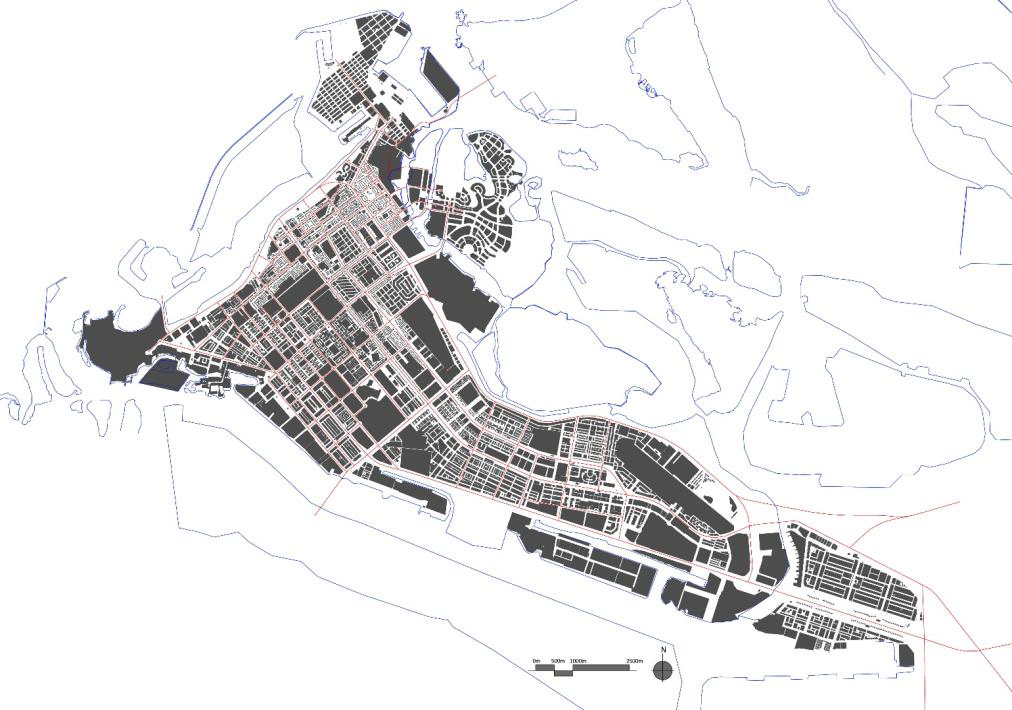
Main island of Abu Dhabi
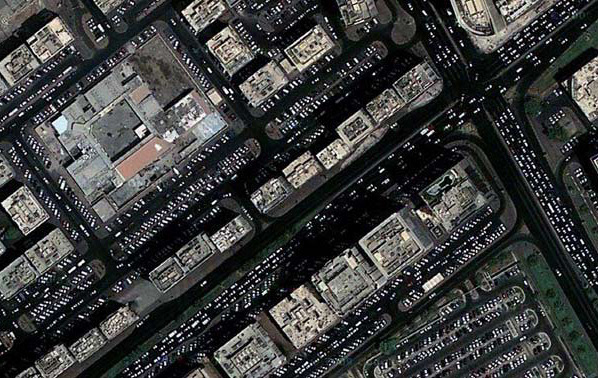
Birds eye view of side alleys in downtown Abu Dhabi
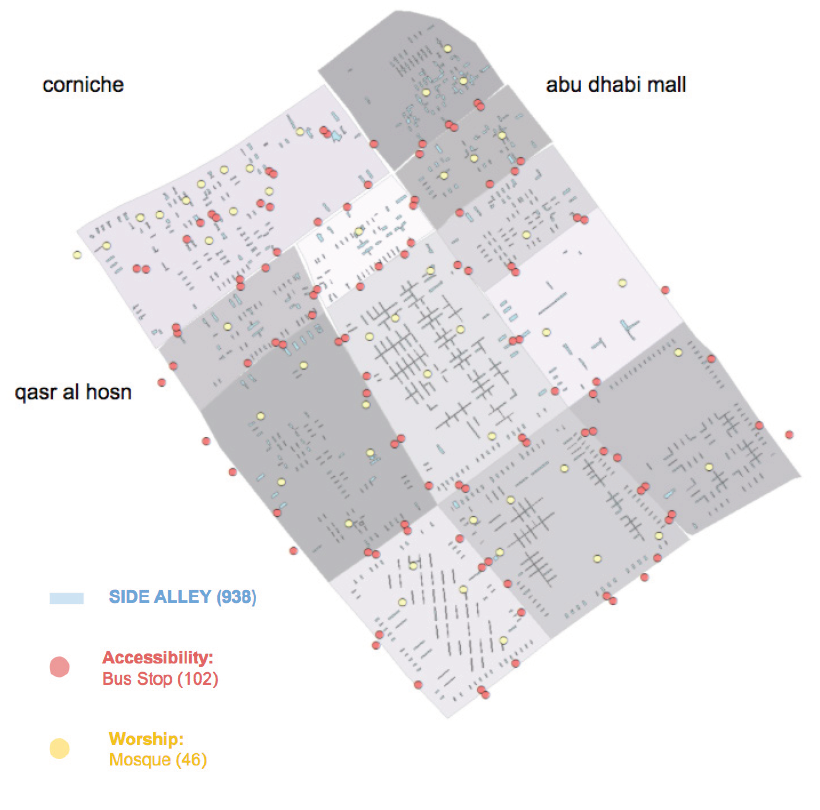
Mapping exercise of all the side alleys in Al Danah
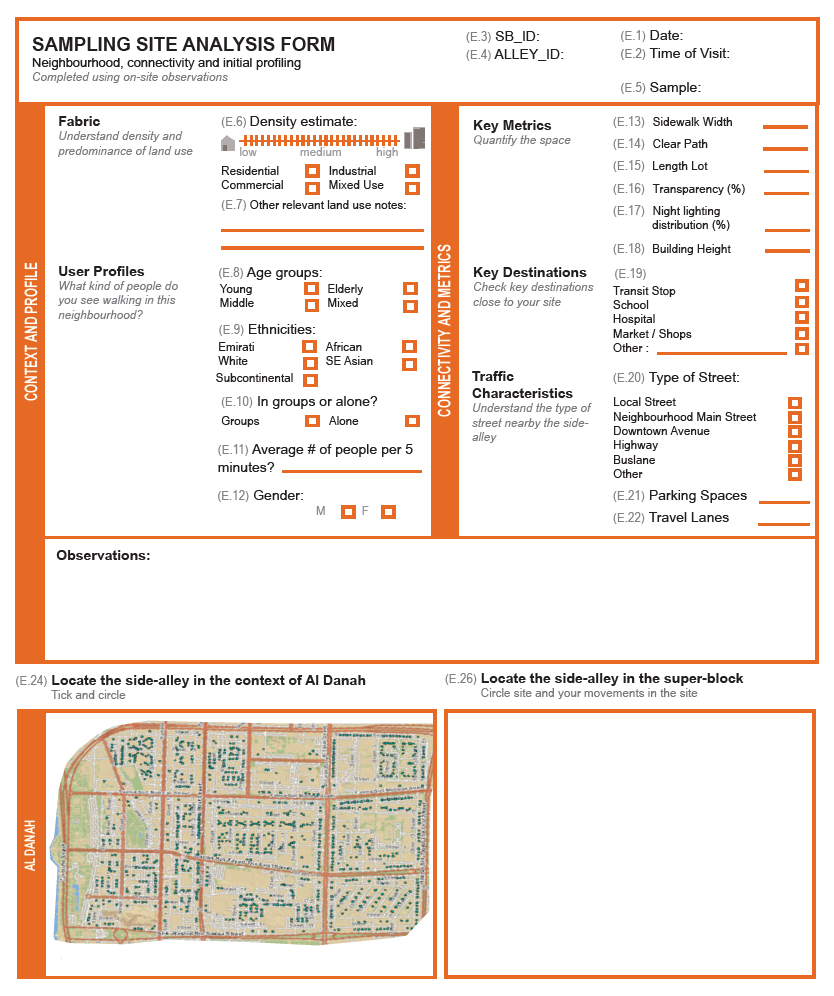
Site selection form made for my data collection team
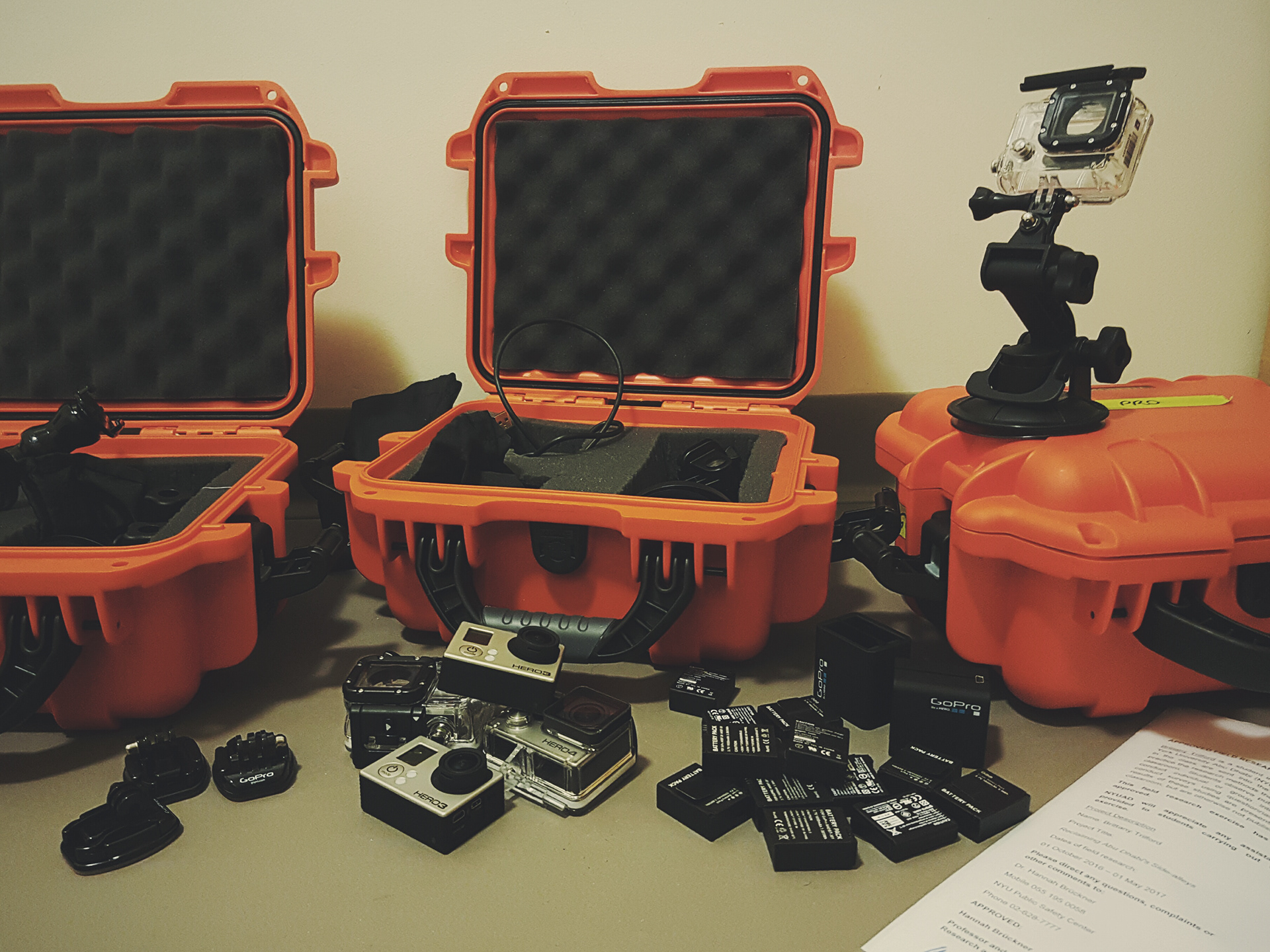
Data collection kit: GoPro camera mounts
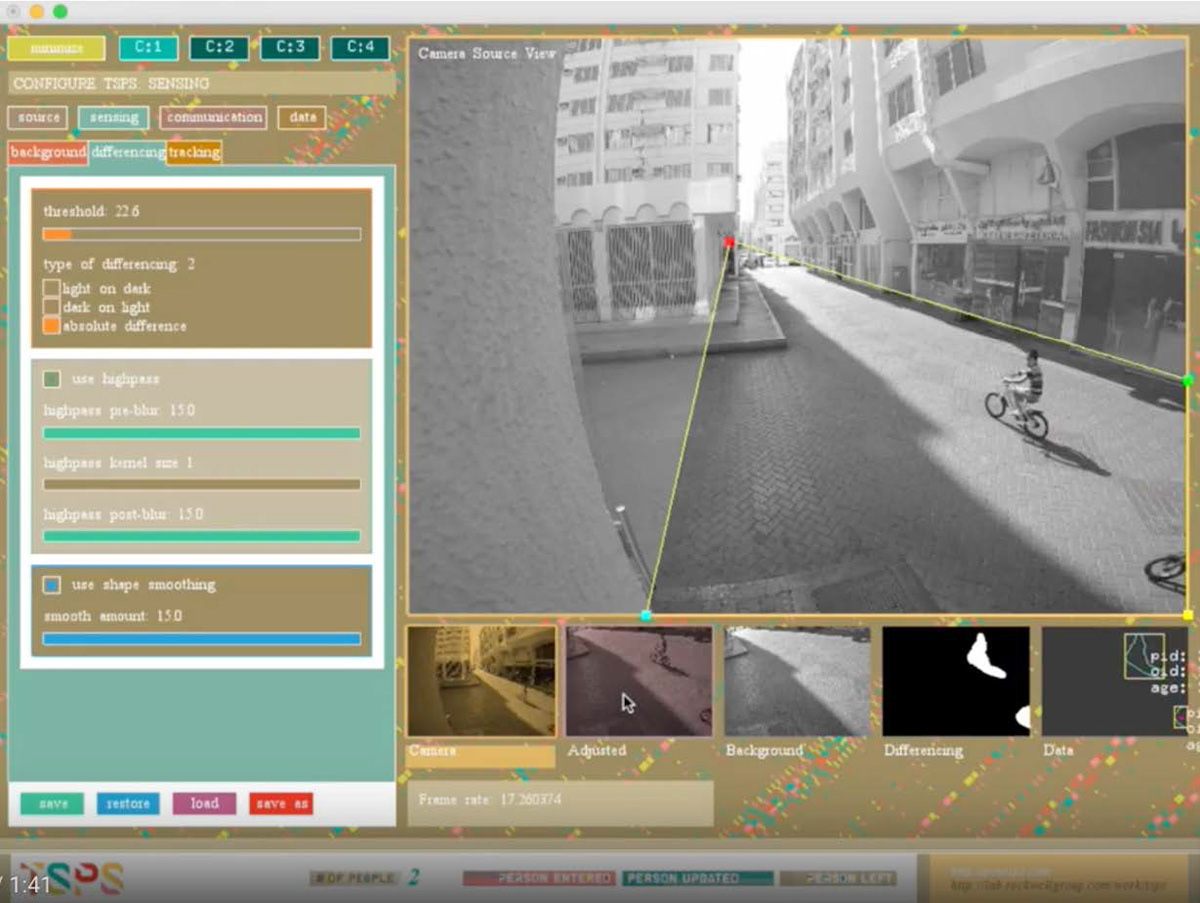
TSPS Analysis methodology
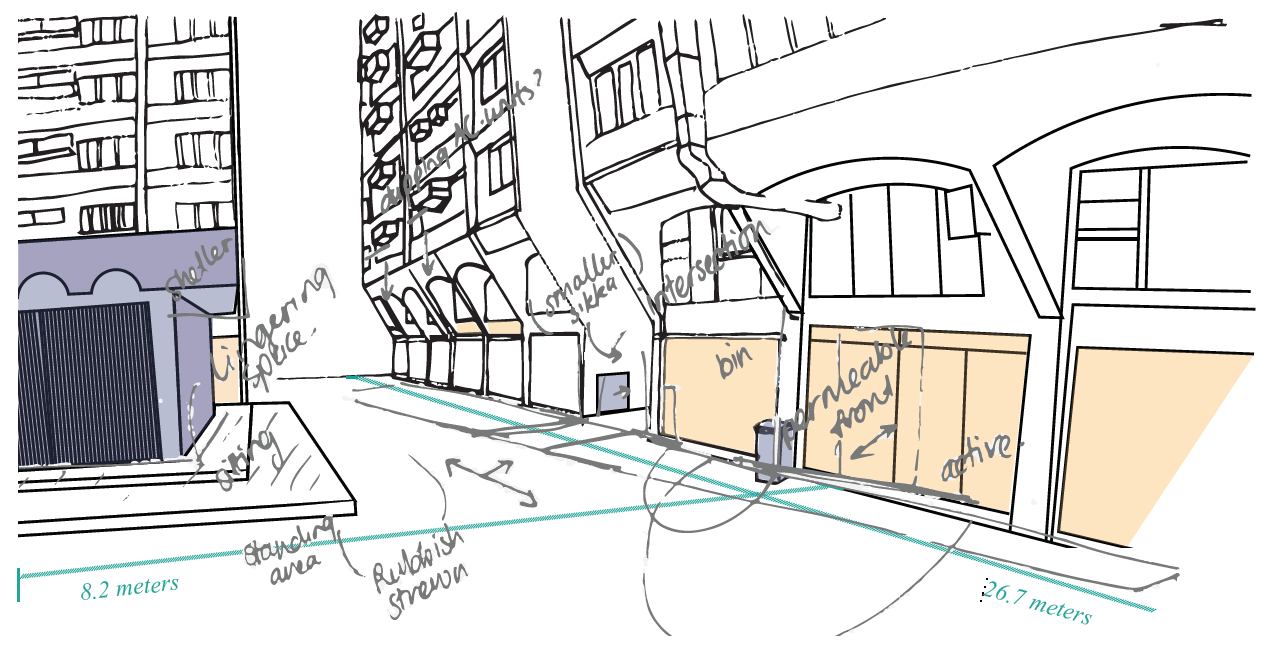
Ethnographic sketches of Site 1
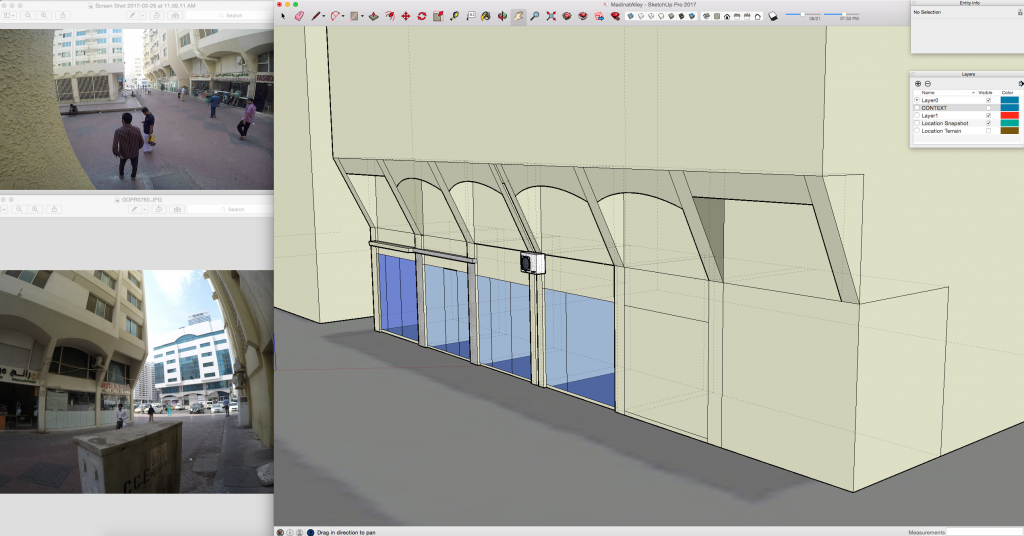
Modelling of a Site for Analysis
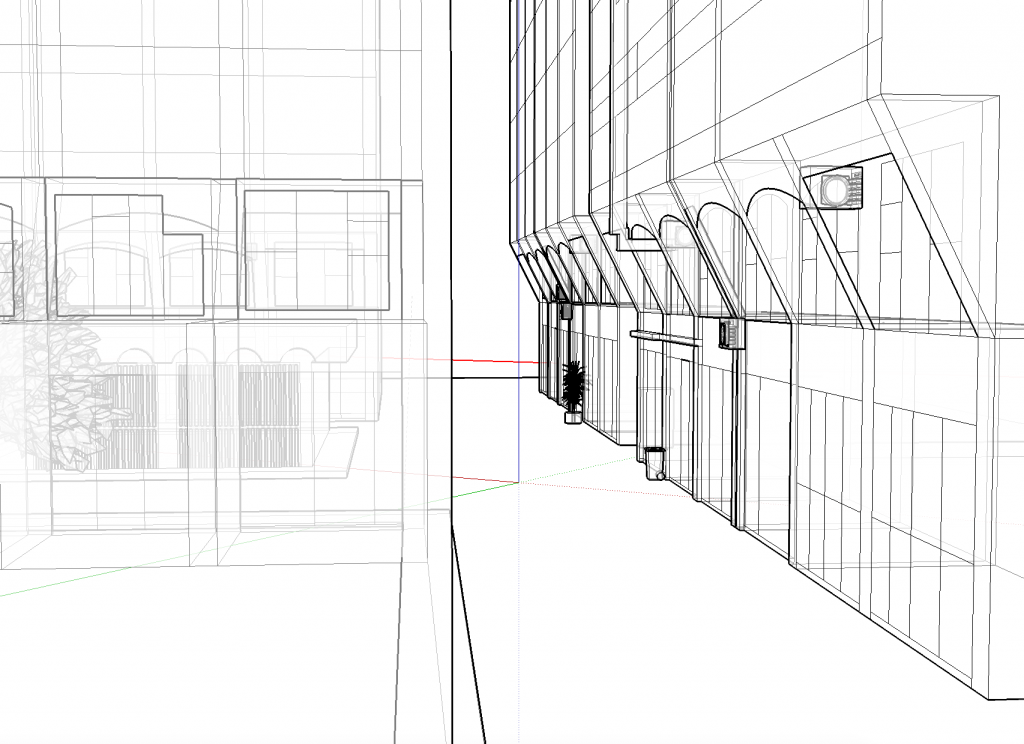
Modelling of a Site for Analysis
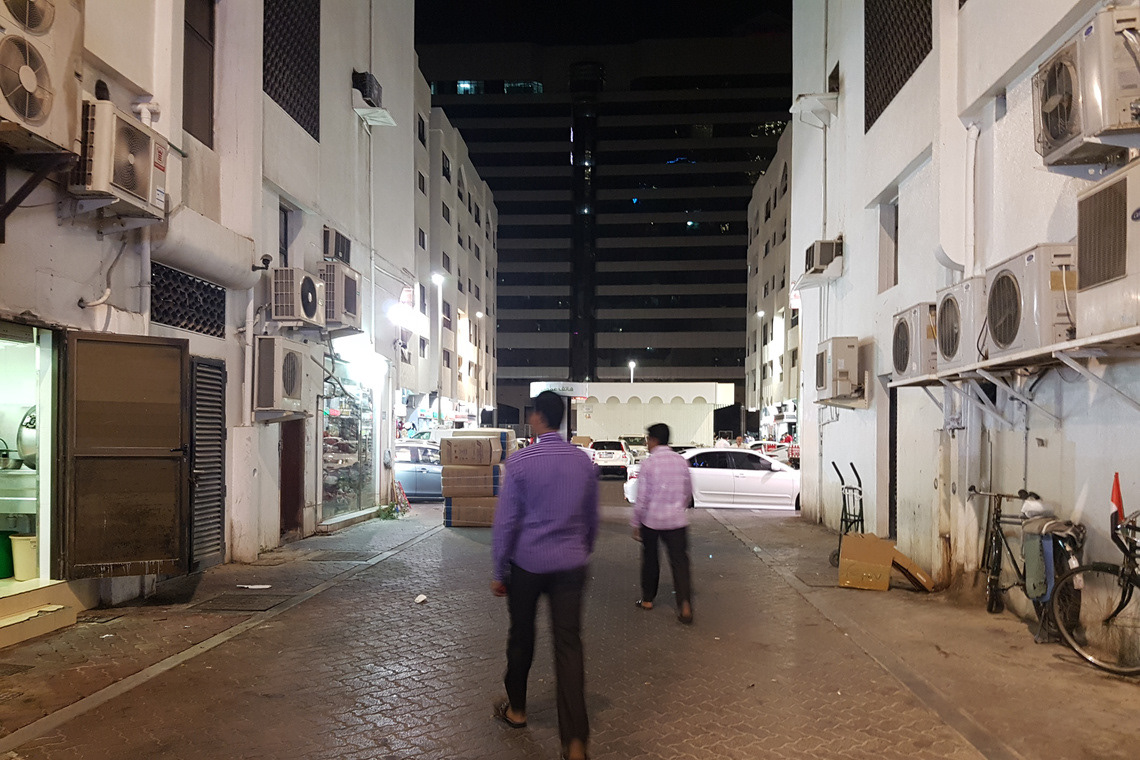
Example of a site side alley
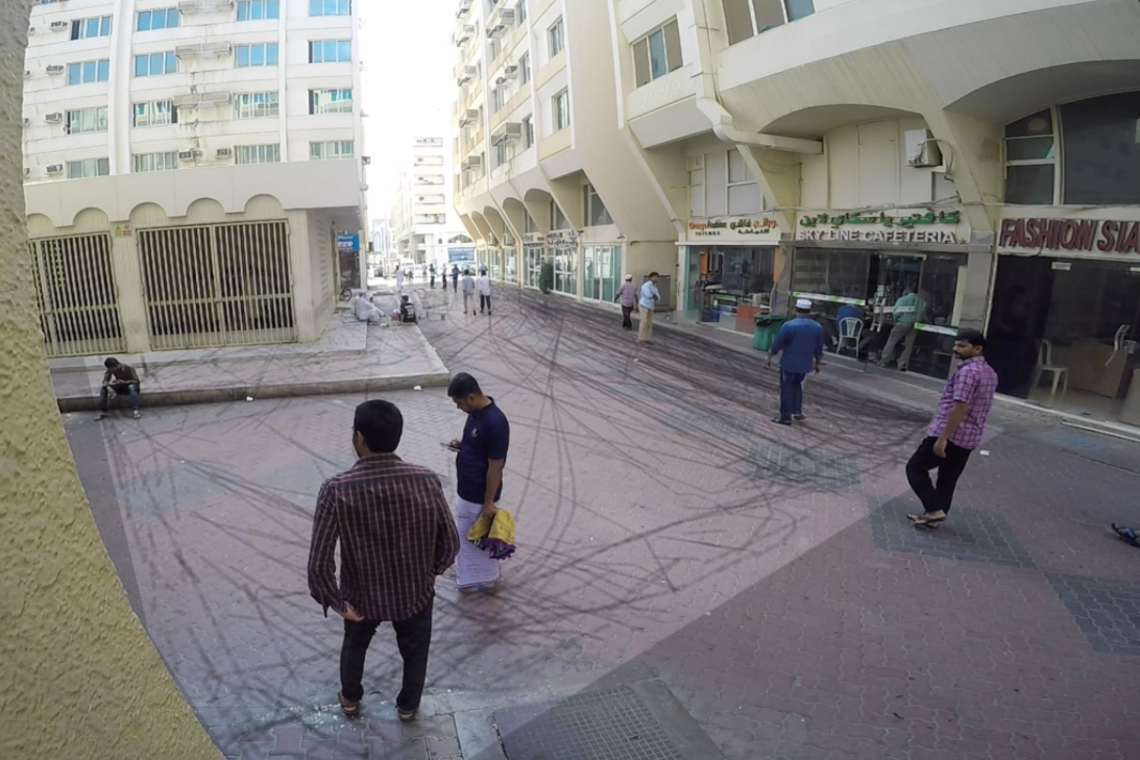
Day Analysis Results: People stick to the edges of open spaces
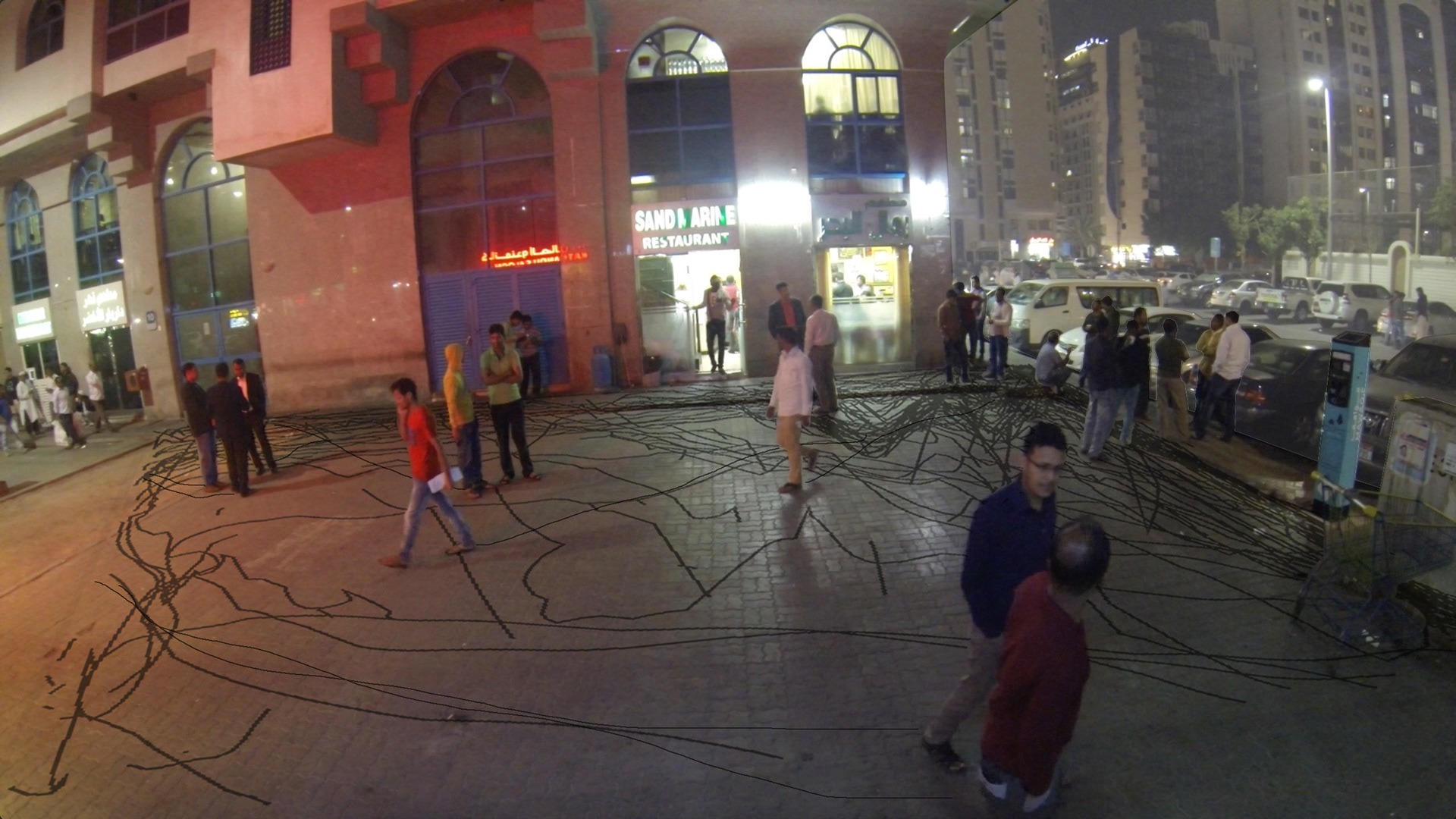
Night Analysis Results: People move more freely where there is light
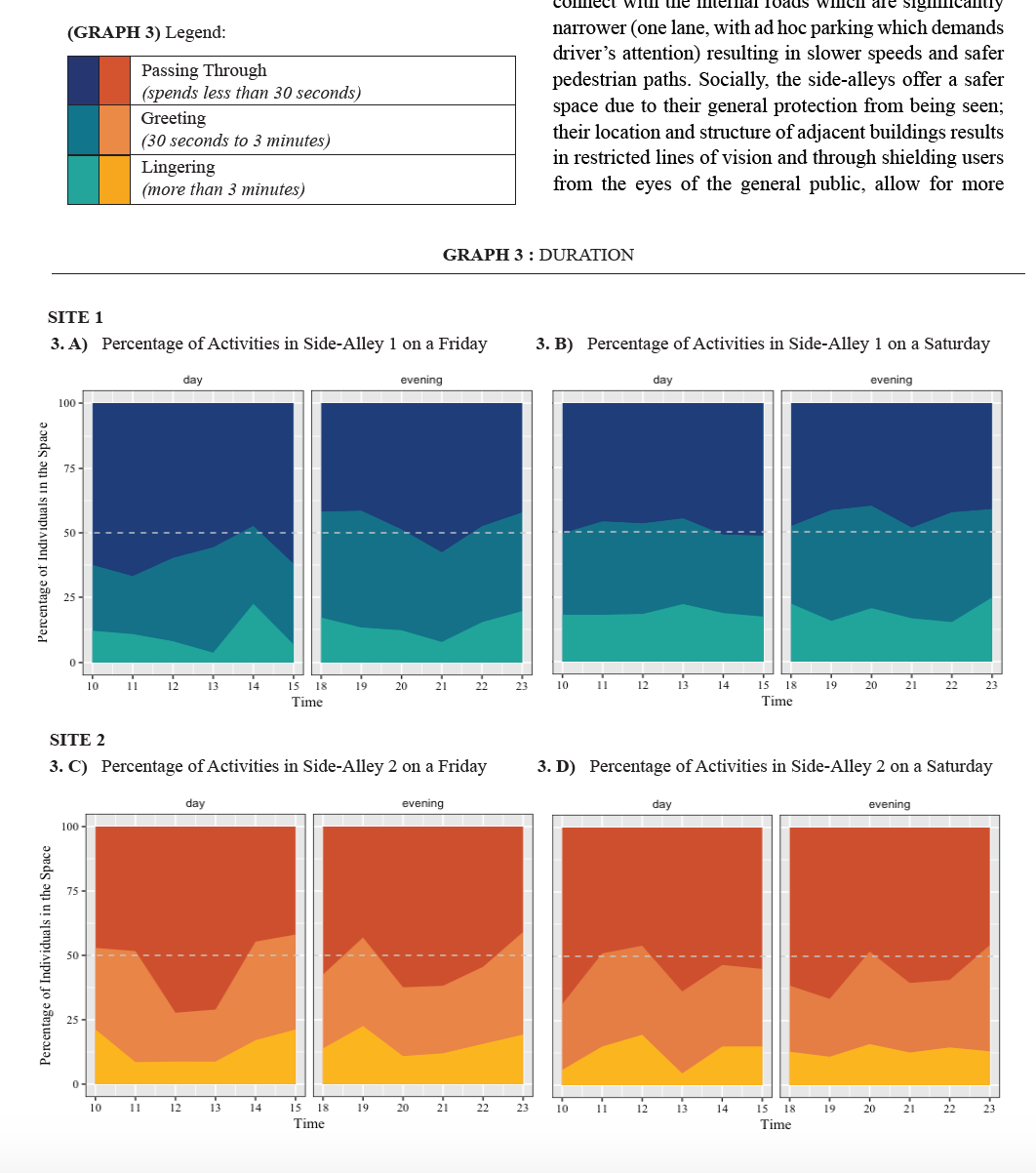
Graph examples
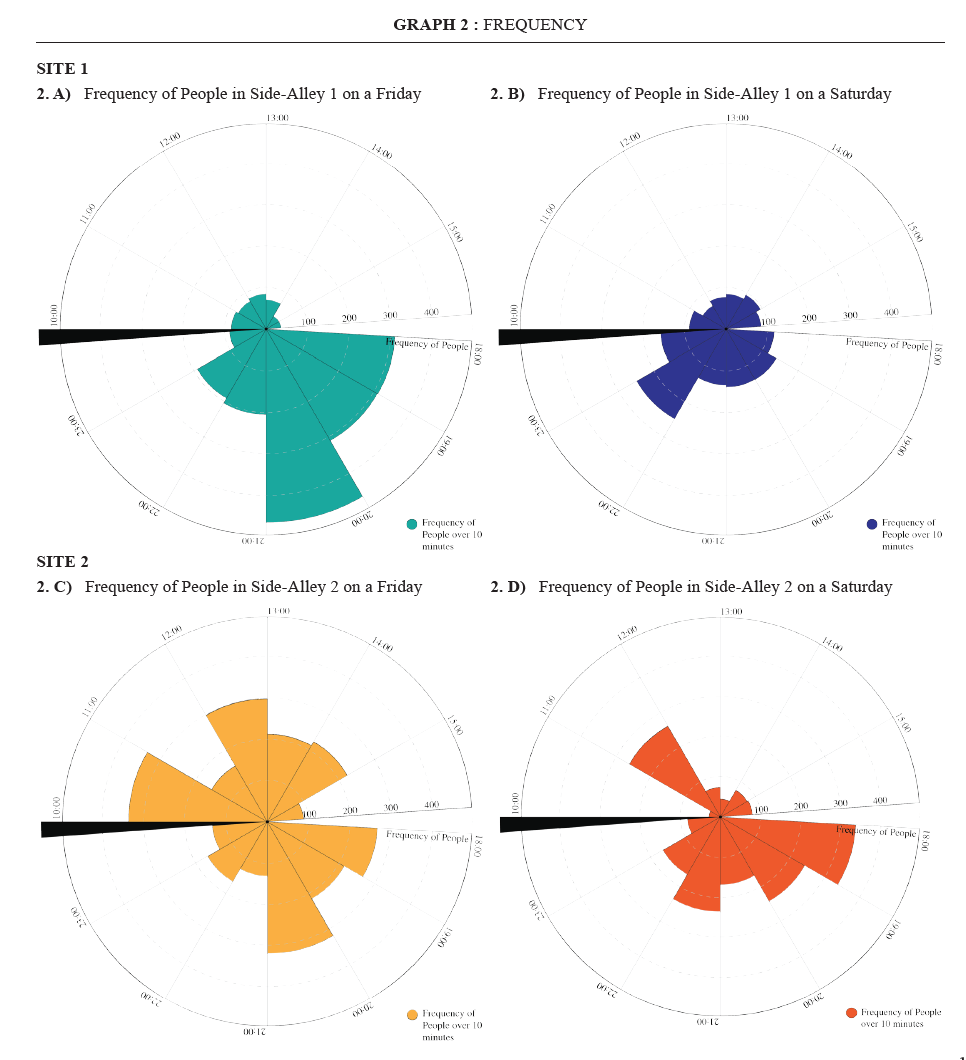
Graph example: Site visitors
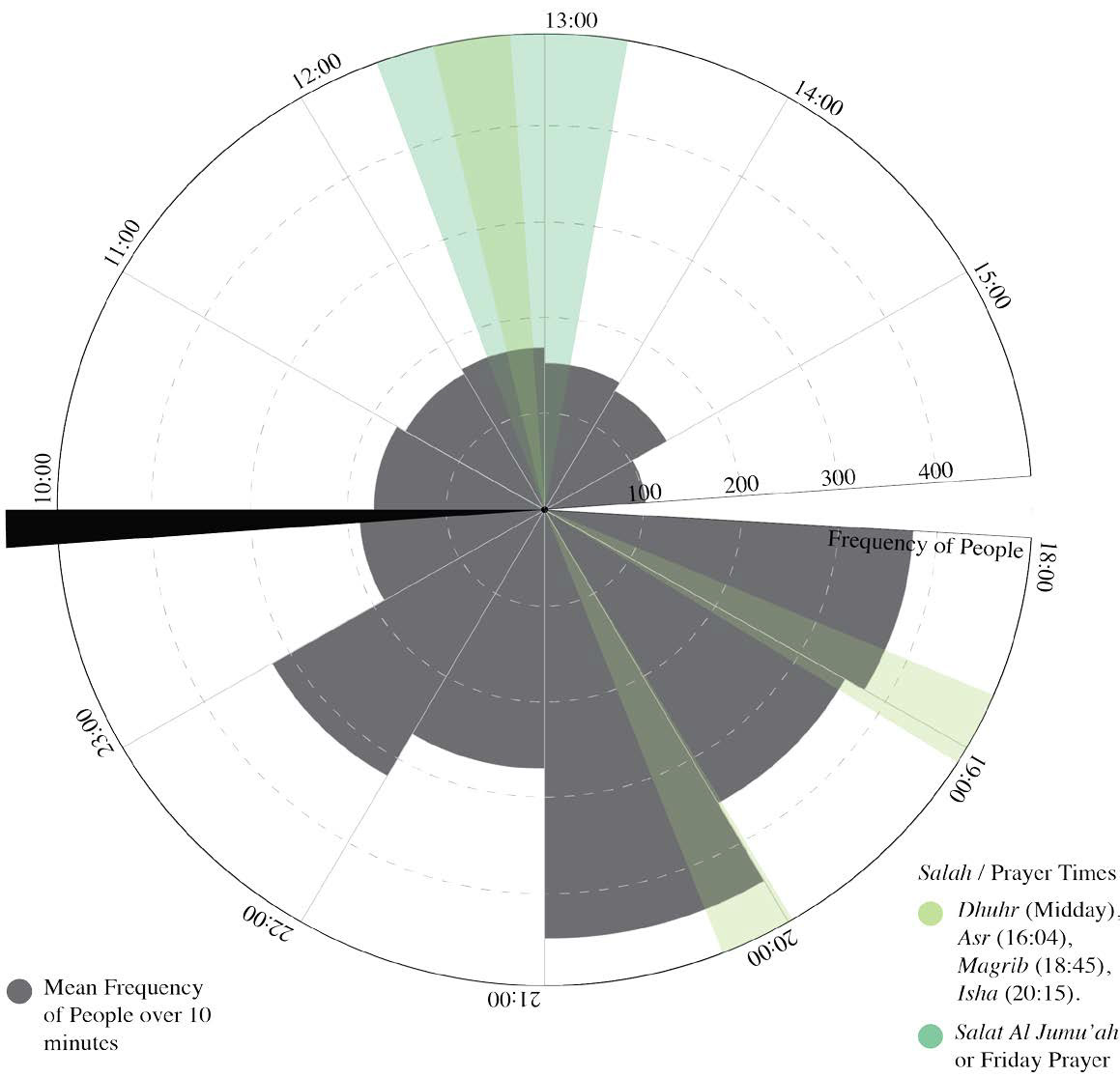
Graph example of number of visits over the day
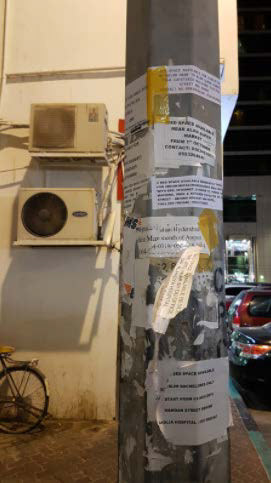
Finding: Informal communication boards
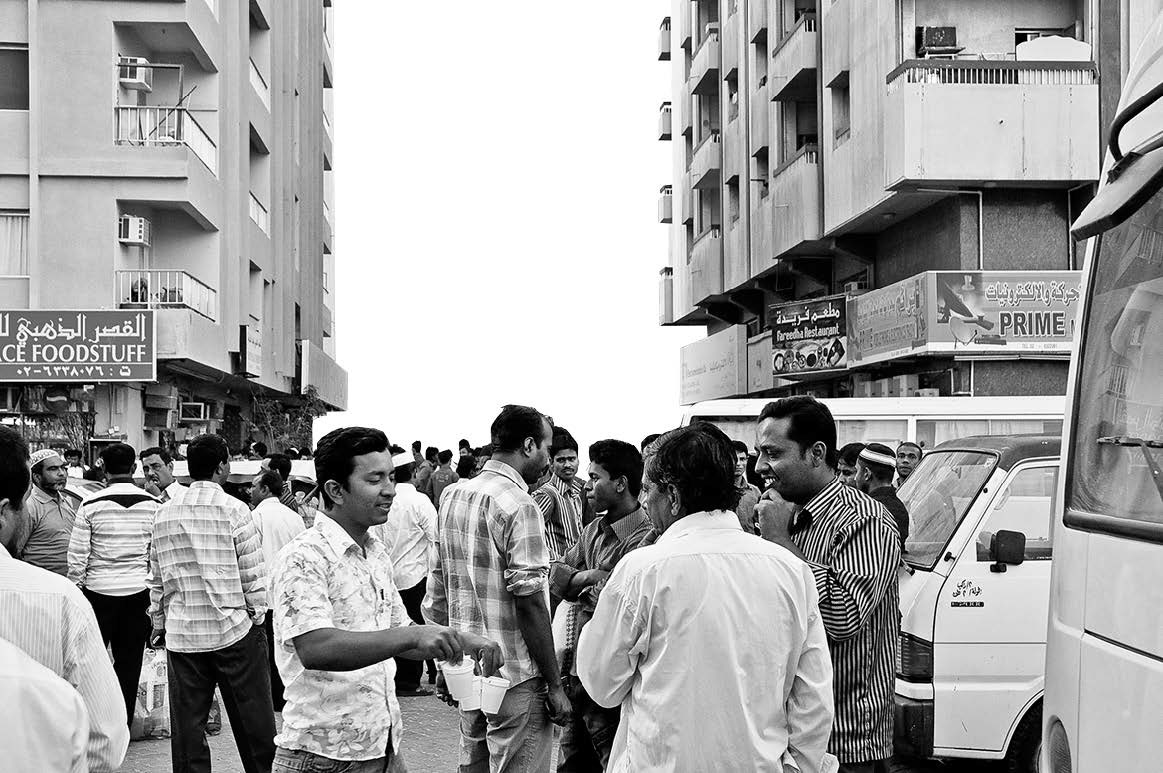
Finding: Gathering places
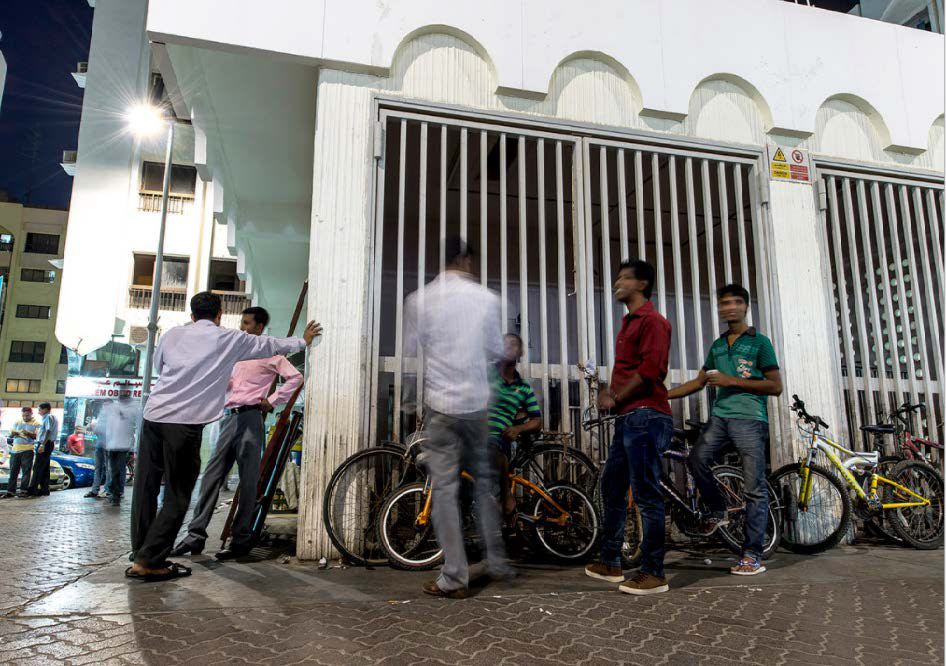
Finding: Informal gatherings around bike infrastructure
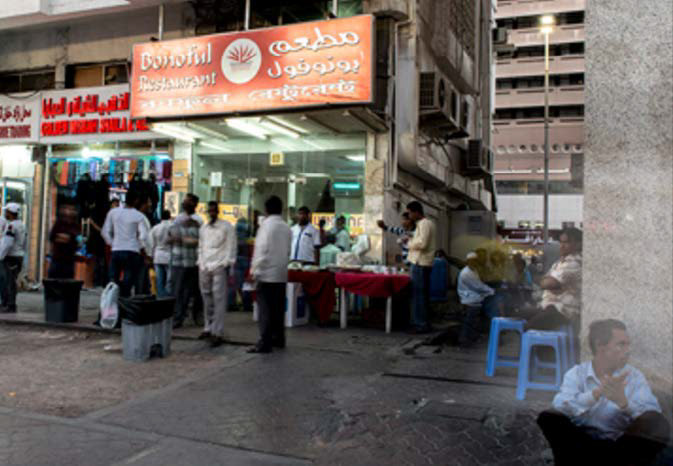
Finding: El Fresco informal dining in the alleys
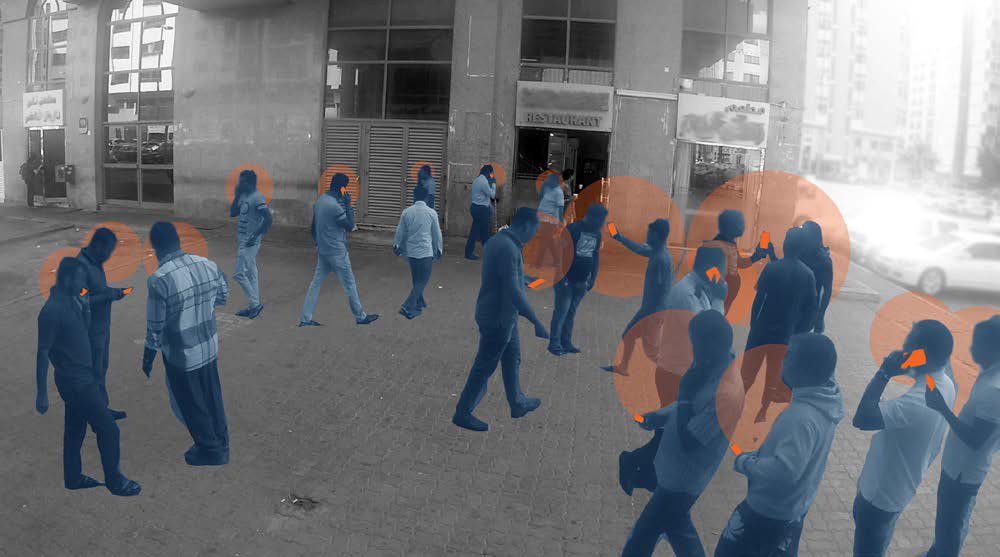
Finding: Outdoor telecommunications cafe space
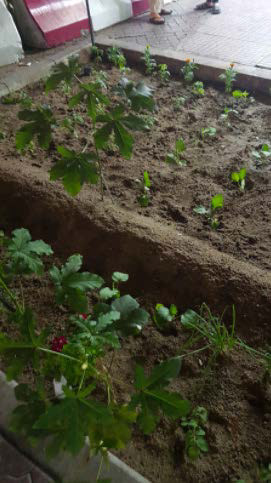
Finding: Informal gardens
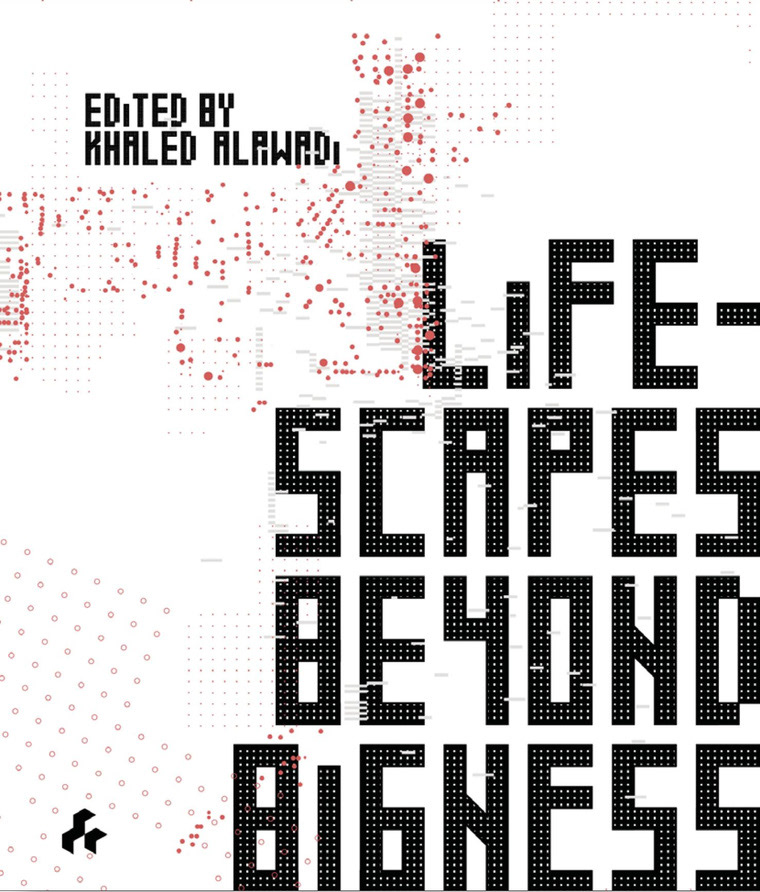
Post-study Publication in 'Lifescapes Beyong Bigness'
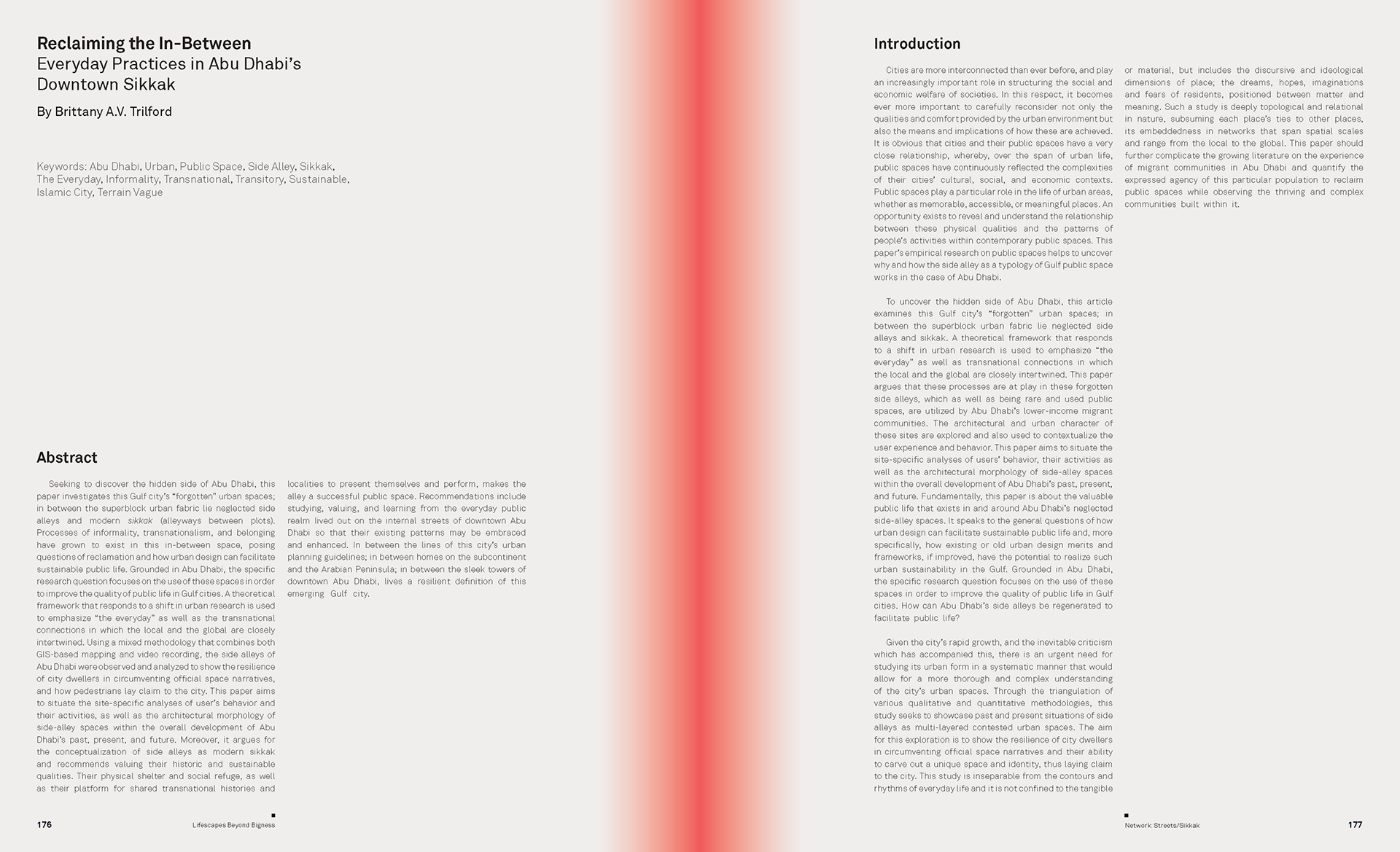
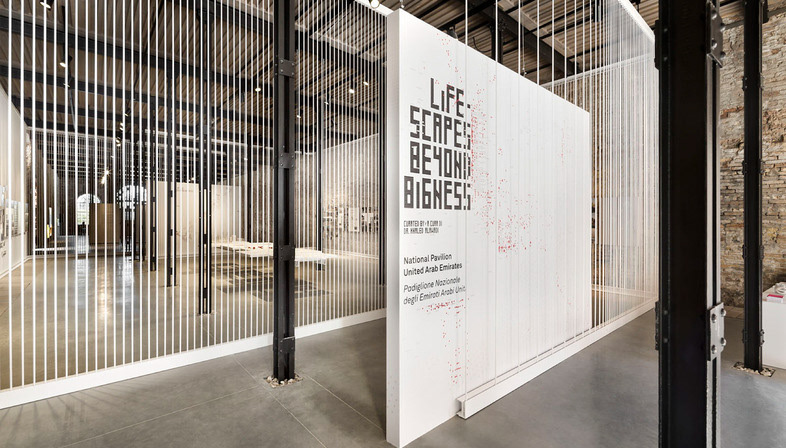
Post-study Exhibition: 16th Venice Biennale
